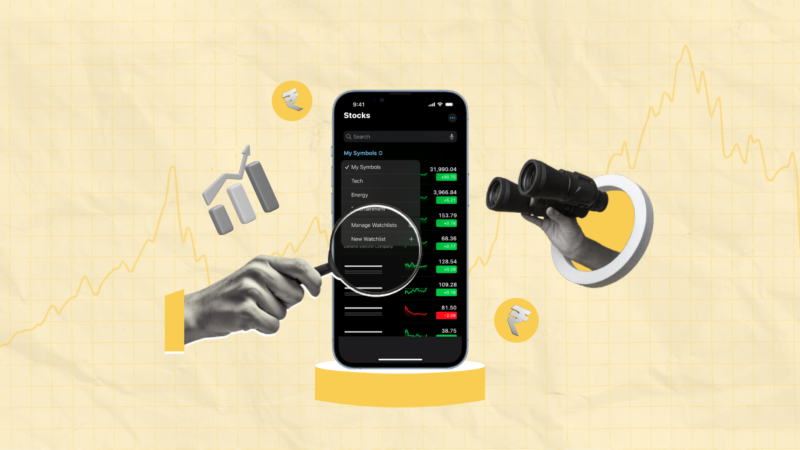5- Factors to Consider when Analysing Mutual Funds

Mutual funds are unique financial instruments that pool funds from multiple investors and invest in a plethora of different assets. These assets can be stocks, bonds, debentures or a mix of both. Since mutual funds invest in market-linked securities, their performance is directly correlated with the market movements. That said, due to the differences in asset allocations, not all funds may perform equally over the same period. This makes mutual fund performance a crucial factor you need to consider before investing. Continue reading to find out more about how to evaluate a mutual fund.
What is the return in a Mutual Fund?
Return, in the context of a mutual fund, can be referred to as the gain or loss you realize from your investment in the fund over a specific time period. It is usually expressed as a percentage of the invested amount. For instance, let’s say that the 1-year return of a mutual fund is 10% per annum. If you had invested Rs. 1 lakh a year ago, you would now have Rs. 1.1 lakhs. The capital appreciation of Rs. 10,000 would be the return in a mutual fund.
Why is it important to analyze Mutual Fund performance?
Now that you know what the return of a mutual fund is, let’s address the importance of mutual fund performance analysis. There are three primary reasons why you should always analyze a fund’s performance before investing.
- It helps you assess whether the fund matches your investment objectives and gives you insights into its risk profile.
- It allows you to compare its returns with that of a benchmark index.
- It enables you to do a cost-benefit analysis, where you can assess whether the returns generated by the fund justify the costs associated with it.
Step-By-Step Guide to Track Mutual Fund Performance
Contrary to popular opinion, analysing mutual fund performance is not very complicated. In fact, it is very easy as long as you follow the steps outlined below.
- Benchmark Comparison Every mutual fund has an index it is benchmarked to. Benchmarking is done specifically to enable both the fund manager as well as the investors to evaluate the fund’s performance. Comparing the returns generated by the fund with the benchmark index can give you insights into how well the fund has performed relative to the broader market. Ideally, a mutual fund must consistently outperform its benchmark index.
- Comparison With Similar Mutual Funds Another good way to analyze mutual fund performance is to compare its returns with its peers. Now, it is important to remember that not all funds have the exact portfolio of assets or the same allocation ratio. Therefore, it is important to first ensure that the funds you’re comparing have nearly the same portfolio of assets and allocation ratio.
- Expense Ratio Analysis The expense ratio is a fee that Asset Management Companies (AMCs) levy. The fee is used to cover the expenses associated with managing and administering the fund. The expense ratio is expressed as a percentage of the invested amount. The higher this ratio is, the lower your returns are likely to be. Therefore, this is something that you need to factor in when analyzing mutual fund performance.
- External Factors Like The Market And Economic Cycles When determining the performance of a fund, simply looking at the numbers may not provide you with the context you need to make a well-informed decision. You need to also take into account external factors like the economic and market cycles, which have a major impact on the fund’s performance. A fund that produces low returns may not always be a bad investment if its performance is due to unfavorable and volatile market and economic conditions.
- Consider The Mutual Fund Risk Profile Every mutual fund has its own risk profile. Some funds like those that invest in equity can be high risk, while others like debt funds may have a more moderate risk profile. When analyzing mutual fund performance it is crucial to also account for its risk profile.
Doing so can help you determine the risk-reward ratio and whether the returns produced by the fund are worth the risk you take by investing in it. As a general rule of thumb, the higher the mutual fund risk, the greater its returns must be. - Fund Manager’s Track Record When analysing mutual fund performance, it is also important to look into the fund manager’s track record and tenure. A change in the fund manager can have a major impact on how the fund performs. A mutual fund with an experienced manager and a consistent track record is likely to do better in the future than a fund with a relatively inexperienced manager.
Conclusion
Following the steps outlined above should help you make an informed investment decision. Now, it is essential to note that analysing mutual fund performance is a necessary skill you need to hone before you begin investing your hard-earned money.
Analysing not your cup of tea? Try m.Stock’s intelligently curated mutual fund filters. Get tailormade lists of best equity funds, top ELSS funds, best fund managers and more. Simply open your FREE m.stock Demat account and earn 1% extra returns on your mutual fund investments!




